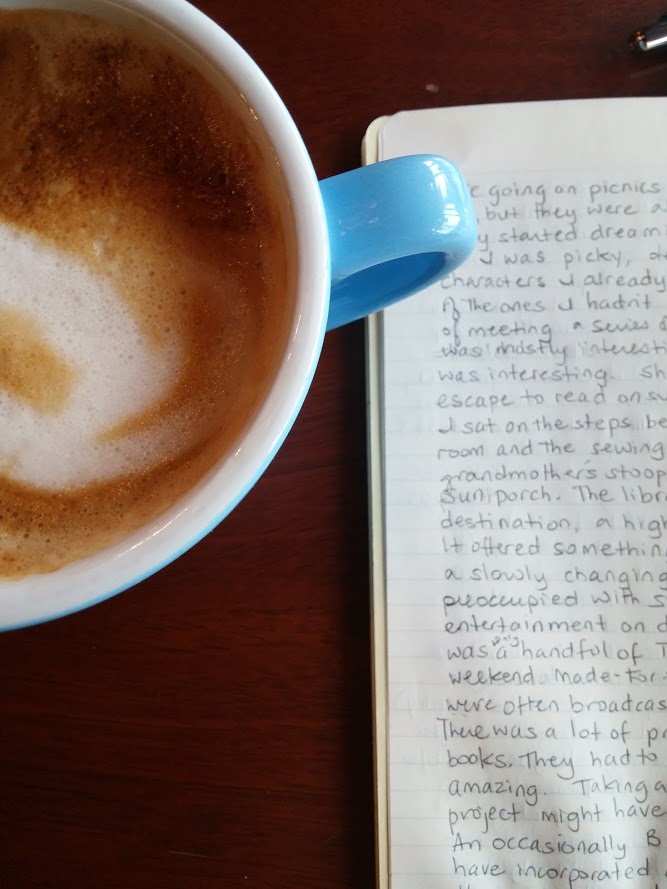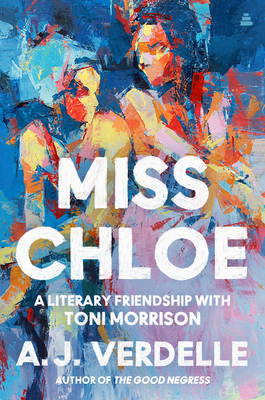A. J. Verdelle chronicles not only her friendship with a renowned writer, but also her own personal relationship with words—as a reader and as a writer—and the development of this lasting relationship over the years. About three dozen pages into the volume, this quotation reveals how she found her community:
“Eventually, of course, I developed acuity enough and autonomy enough to choose more deliberately, more cautiously. I chose Morrison frequently, and from a thrumming list of others: Maya Angelou Alice Walker, Julia Peterkin, Gayl Jones, Toni Cade Bambara, June Jordan, Paule Marshall, Zora Neale Hurston. Much later, I read Ann Petry and Nella Larsen. Reading this roster of Black women helped me understand that Morrison was not writing alone.”
So many of these names are familiar to me (but I would have added Terri McMillan, Bebe Moore Campbell, Shay Youngblood, Gloria Naylor, Dorothy West, Marita Golden, and April Sinclair) that I knew I would enjoy this volume, if only for Verdelle’s thoughts on reading. She writes: “If you let a Black girl loose in a library, you may not recognize the woman who emerges.”
Her discussion of the vital importance of other writers’ words—to her personhood and her creative work—is impassioned: “We/I owe so much to books. Books changed my sight lines, my expectations, my sense of the enormity of time and the complexity of humanity.”
This theme continues through her account of the years that Toni Morrison herself spent in editorial work. Questions she poses from Morrison’s point-of-view remain valid today: “Why shouldn’t we stand on shelves in the libraries? Why shouldn’t our spines be straight? Why shouldn’t she change which books were published?”
Verdelle celebrates the act of reading generally, but also reading Toni Morrison specifically. Close rereadings of Morrison’s work lead to incisive commentary about individual narratives and characters, Morrison’s oeuvre, and her overarching intent and underlying preoccupations:
“Morrison’s novels are full of teenage girls showcasing or dramatizing the discoveries, the misdirections, and the assaults that implode and plague their lives. Even as the decades pass for the characters, and they mature into parents and grandparents and exhausted observers, still, the novels spotlight teenager girls.”
For those who explore Verdelle’s memoir with the experience of only one or two of Morrison’s novels, there are plenty of passages to tempt further exploration:
“If you look, you will find specific reflections on complex and straightforward human endeavors, including handling atonement and forgiveness (complex) or cooking soft-boiled eggs (straightforward). You can find full treatises on slavery, naming, Reconstruction, and the Jazz Age. You can find secondary treatises on the Korean War, Black posterity, Black women’s friendships, mothering. You can also find ribbons, and red velvet rose petals, and a clearing in the woods where a woman can preach.”
Inextricably intertwined with her love and respect for reading is Verdelle’s desire to write. “Writing had been what I’d wanted to do,” she explains, since “well, since learning that somebody wrote everything I was reading.” Many of us who are compelled to write can recall the moment at which we realized that someone—a person—wrote the words inside of books. Verdelle’s tone—so direct and clear—includes her readers in this conversation. It feels, as we absorb her relatable prose, as though she has already included us in her circle.
This circle includes everyone who has influenced her work, including James Baldwin who, Verdelle writes, “famously said that writers have eighty million decisions to make. (So get busy.) The number is not an exaggeration.” (This immediately becomes one of my favourite observations about writing life!) Sometimes she carries on to make specific suggestions, following another writer’s advice, as in this instance: “So, those of us who intend to write need to build our decision-making skills. And we need to make all those decisions against our human backdrop—the ticking clock we know as mortality.” Her natural inclination to twin commentary on both art and life ensures that readers are attuned to the universal elements at work, so I suspect creatives of all sorts (not only writers) would find value here.
Verdelle returns, consistently, to Morrison, however. And because she has the experience of a long-time friendship with the writer, there are additional layers to reflect upon, in comparison with another writer who could only glean wisdom from Morrison’s own writing or lectures about the craft of writing. For instance: “From writing, we learn the power of the pause; from Morrison, I learned about power in pause in person. I am neither afraid nor made uncomfortable by pause, by silence, by moments where thoughts make their connections, rendezvous in sit. Some pauses are pregnant and worth the wait.” (And, if you’re wondering, their friendship had its challenges.)
Most often the advice is Morrison’s, or is rooted directly in a consideration of her work. For instance: “Morrison expected that writers would take on the task of independently teaching themselves. Regulating their own lives, their own writing practice, their own schedules.” The importance of initiative and self-regulation, especially for freelancers, cannot be overstated.
Verdelle is not dismissing more formal education, though she doesn’t overlook its limitations: “Imagination can only be nurtured; technique can be taught, identified, explained.” And, because she is herself an accomplished writer (her debut novel, The Good Negress was a critic’s darling in 1995), she has her own advice to share. Consider: “Characters blister their feet on the roads in their environment, their era. We writers have to recognize, and sometimes set aside, the lens of now.”
Though particularly rewarding for me, combining elements of a bibliomemoir with a chronicle of a literary friendship which includes one of my personal favourite writers, A.J. Verdelle’s Miss Chloe is rich and thought-provoking enough that readers with only one of these inclinations will find it a rewarding read.
Great stuff for writers.
A. J. Verdelle. Miss Chloe. NY: HC-Amistad, 2022.

